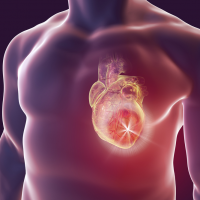Signs of a Heart Attack

As our loved ones age, it’s important that we are able to recognize and deal with common health risks that come with aging. Heart attacks are one of those conditions family members need to be able to catch quickly to seek medical attention immediately. Below are the four signs of a heart attack according to the American Heart Association.
- Chest discomfort. Most heart attacks involve discomfort in the center of the chest that lasts more than a few minutes, or that goes away and comes back. It can feel like uncomfortable pressure, squeezing, fullness or pain.
- Discomfort in other areas of the upper body. Symptoms can include pain or discomfort in one or both arms, the back, neck, jaw or stomach.
- Shortness of breath with or without chest discomfort.
- Other signs may include breaking out in a cold sweat, nausea or lightheadedness.
These symptoms may manifest differently in men and women, but it’s important that families act fast if they think their loved one is experiencing a heart attack. In the event of a heart attack, call 911 as fast as possible. Every second counts when a heart attack is happening.
For more information about heart attacks and what you can do when one strikes, go to the American Heart Association’s heart attack resource center. There you can learn about the signs of an attack, risk factors, and even what to do after an attack happens.
Keeping our elderly loved ones safe is everyone’s responsibility. Sharing this information with other family members at the next family gathering may be an uncomfortable conversation, but it might just save a life.